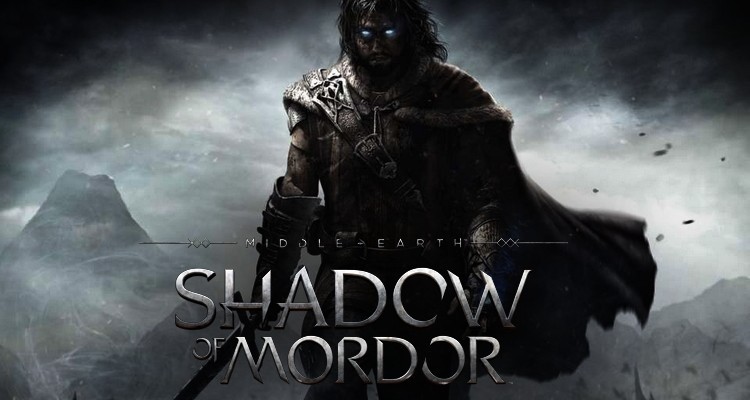When I was in 12th grade I spent the majority of a partly cloudy Saturday in a classmate’s basement reading through Tolkien’s magnum opus, The Lord of the Rings trilogy. Not out of personal curiosity, mind you, but as a challenge issued by my then English teacher across all of his senior level classes. It was the first and last time I’ll read those works.
The experience, though memorable, definitely colored my opinion of those stories. In conjunction with the movies (which I’ve also only seen once each), the franchise seemed to hold high a sense of haughty verbosity that proved an incredibly tedious barrier of entry for what was, at its core, a fairly standard story about good vs. evil. In general, the fantasy genre has a pretty big issue with lingering on the minute in order to create a bigger sense of wonder. I was utterly relieved when Middle Earth: Shadow of Mordor bucked its source material’s trend of excessive micro-imagery, and gave me a game whose narrative I could relate to.
The story isn’t over focused on the details. Even portions of vital exposition never last more than a couple of minutes. Shadow sticks its toes into grandiose territory, but never wishes to smother you in lore or self-aggrandizing pretense. This world is dirty and straightforward, and focused particularly on riling any given player’s basic needs to run around and slay things. It’s a refreshing idea, if only because of how very opposite Shadow is to every other product from that license.
Relatable narrative shouldn’t be read as impressive, though. Aside from a few key links between Shadow and the LOTR canon, this game’s story does absolutely nothing new with the tried and true tropes it makes use of. Almost every twist and turn you could expect fires off in succession and predictable fashion. When the plot begins to travel off the path and flirt with potentially producing something unexpected, it either quickly rights itself, or never fully develops it. At least veteran voice actors like Troy Baker and Alastair Duncan give life to what would otherwise be a droll script.
The story of Talion’s revenge isn’t necessarily bad, though it lacks a genuine cohesiveness throughout. After he and his family are slain in the opening moments, and the elven wraith possesses him, the sense of purpose granted by his need for vengeance is clear and well defined. After the first couple of story related missions, when you begin learning how to hunt epic prey with a jolly dwarf, for instance, you begin to start getting that existential “why am I doing this?” feeling. Some characters come and go unceremoniously, their overall worth to Talion or the story at large never truly realized.
Which may not be a terrible thing, overall, because the simple act of playing this game is worth the price of admission. Shadow borrows heavily from fellow WB posterboy Batman (and subsequently, Assassin’s Creed) when it comes to dispatching various baddies. There is a single attack button, a counter all button, a dodge for those uncounterable moments, and a button dedicated to your ghostly abilities. The give and take of combat amongst waves of enemies, mashing attacks until a few particularly froggy uruks decide to leap, is almost a carbon copy of the Arkham games. Just replace “gadgets” with the ability to drain the life essence from your enemies and eventually control their minds. Also, slow the blow-by-blow in each combo down a hair, and give each strike a little more weight and resonance – and in turn, give you more time to choose your next target, should it not be the greenskin in front of you. This is an improvement to the the formula that is subtle at first, but the time between button presses seems far less reactionary 10 hours in than at any point in the previous Batman games.
Talion is no Dark Knight, though. He doesn’t move as freely with no quick bat grapples out of sticky situations. If anything, his abilities are almost geared to the exact opposite. For example, a teleporting ability he has can replace his ranged attack on command and instantly places you in front of a target, and follows up with some manner of brutality upon it. Special two button maneuvers focus heavily on killing or maiming and less so on crowd control, which is ironic seeing as the crowds of uruks in Shadow can reach numbers higher than the Arkham games could fathom.
In combat especially, you very rarely feel like you aren’t the most powerful person on the screen. Your blue collar uruk only comes in as a minor annoyance, with your chances of dying to anyone in particular being incredibly rare, and usually a matter of you making too many mistakes rather than the enemy being more skilled than you. The uruk captains are another story, entirely. Many of them take on extra traits, beyond just having more hitpoints, that make them better than your average orc.
These traits can include battle-centric strengths and weaknesses like being completely immune to ranged attacks or being susceptible to instant death via stealth kills. They can also go beyond that, creating a collage of personality traits that really make each captain a unique encounter. Rash the Wicked was afraid of fire, so whenever I had the opportunity to prepare for him, I made sure it was somewhere that a blazing inferno could erupt with convenient timing. The next time I found him, he had burlap wrapped around his face, covering the burns I gave him.
But he was never a complete pushover. If fire wasn’t handy, I had to straight up fight him, and he was wildly adept at blocking and avoiding my high damage attacks, and was never too far from other captains (especially after the fire incident). Mixing captains into a melee full of bread and butter uruks changes combat into a markedly different sort of animal. Your head is constantly on a swivel, as the mass of twisted green killers are all fighting for the most glorious prize of all: political power.
Should any uruk bring you down in combat, that individual usually earns a promotion. Uruks, being a feudal and confrontational bunch, are always fighting amongst themselves for status, territory, and power within the ranks or Sauron’s legion. Being the one to stop you in your undead tracks really makes a resounding impression over an uruk’s rivals. As detailed in a grid layout via the Nemesis System where captains sit in spaces like board game pieces, the higher you are on the board, the more powerful. Should a no name uruk slay you, he will be promoted into a captain, gaining a spot on the board, as well as a name and a set of the aforementioned traits.
The Nemesis System creates a more compelling narrative than anything written in the script of Shadow of Mordor, which is somewhat ironic considering its just a cleverly smoke and mirrored system of procedural generation. Watching a scrub orc who got lucky and killed you rise through the rank while avoiding your advances becomes an absorbing game of cat and mouse. It provides a truly organic relationship between me and the villains, and is one of most unique and interesting things a video game has done in years.
Unfortunately, the campaign is sparse, and towards the end of the story, you become such an over-powered monster that the delicate balance between Talion and Sauron’s legion becomes almost non-existent. Some of your late game abilities really break the sense of challenge and strategy in the game. See one of the many “full Nemesis Board branding” YouTube videos as proof.
Closing Comments:
If you are not a die hard Lord of the Rings fan, I urge you to sit down and give Shadow of Mordorthe opportunity to surprise you. It takes cues from some of the most popular and well designed games in the last five years, and wraps them around the groundbreaking Nemesis system, breathing new life in the tried and true revenge story. The story isn’t special in any capacity, but it’s well acted and engaging, thanks in part to the shift away from much of high fantasy’s pomp and circumstance. Monolith proved that even a 70-year-old franchise can still do the unexpected.
This review is based on the PS4 version of the game.








